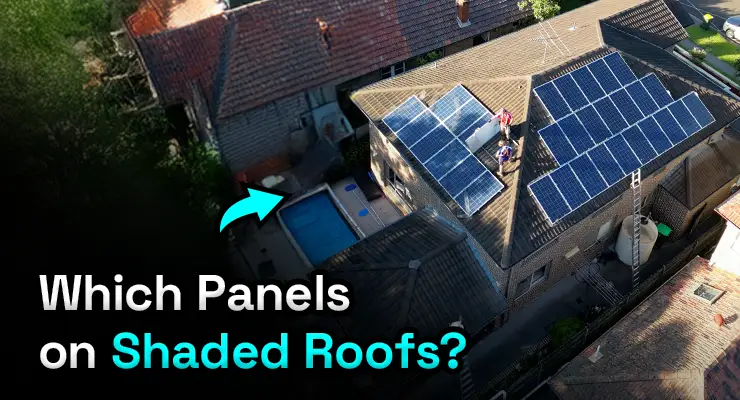
Fast read
To increase women's participation in Australia's male-dominated solar and air conditioning industries, addressing gender bias and stereotypes is crucial. These sectors have long been seen as men's domains, discouraging women from pursuing careers.
To rectify this, we must challenge these biases and emphasise inclusivity. Additionally, raising awareness and highlighting successful women can inspire others. Educational opportunities and mentorship programs should be made accessible, fostering the growth of female talent. Inclusive workplace cultures, policies combating discrimination, and industry collaboration will further facilitate women's entry and success.
By implementing these changes, we can create a more balanced, diverse, and sustainable future for these industries in Australia.
How can we get more women in the renewable energy industry?
In Australia, the solar industry has historically been dominated by men, presenting challenges to achieving gender diversity and equal representation. This article aims to explore the reasons for the underrepresentation of women in the solar industry. It also aims to provide suggestions on how to support more women in building successful careers in this field.
Firstly, let’s understand why there are fewer women in the solar industry. In the past, jobs in this field were usually seen as more suitable for men. This made it hard for women to enter the solar industry. Additionally, the lack of female role models and mentors in the solar sector can make it harder for women to envision themselves in these roles.
To address these challenges and increase diversity, Australia can take several steps. One way to encourage girls and young women is to inspire them to explore careers in STEM fields.
These fields are connected to the solar industry. STEM stands for science, technology, engineering, and math. Schools and organisations can offer programs and initiatives specifically designed to support and inspire girls in STEM subjects.
Societal Stereotypes and Gender Bias
One of the main reasons why many women hesitate to pursue careers in the Australian solar industry is the widespread belief that these fields are only for men. This deep-rooted stereotype can create big obstacles, making it tough for women to see these industries as welcoming or suitable for their careers. As a result, it can hold them back from advancing professionally and getting the same opportunities as men.
To tackle this issue, it’s important to actively challenge and change these perceptions. We need to show that the solar industry is open to everyone, regardless of gender. By doing this, we can create a more inclusive and diverse environment where women feel encouraged and supported to pursue careers in these fields.
Limited Awareness and Lack of Role Models for women in the solar industry
Moreover, a lack of awareness about career prospects in the Australian solar industry compounds the gender gap. Many young women may not be aware of the various job opportunities available to them. They may also not know how they can progress in their careers within these fields. Additionally, the absence of visible female role models further discourages aspiring women from pursuing careers in these fields.
To mitigate this challenge, increasing awareness and spotlighting successful women who have made significant contributions to these industries is crucial. Furthermore, mentorship programs, networking events, and educational initiatives can help women enter and succeed in these fields with confidence.
Educational and Training Opportunities for women in the solar industry
Unequal access to education and training programs makes it hard for girls to join industries like solar. To fix this, we need to encourage girls to get into STEM (science, technology, engineering, and math) subjects early on.
Schools can help by offering fun classes and activities that show how cool STEM is. This helps girls learn the skills they need for jobs in solar power.
It’s also important to make sure everyone has a fair chance to get scholarships, internships, and apprenticeship programs. These give real-world experience and teach useful skills, helping girls get into these industries.
Pairing girls with experienced mentors can also help. Mentors give advice and support, making it easier for girls to succeed in fields where they’re outnumbered by men.
By giving girls the right tools and support, we can make solar industries more diverse and inclusive.

Workplace Culture and Supportive Policies
Building an inclusive workplace culture is key to getting more women into the Australian solar industry. Employers need to make sure everyone feels welcome and supported. This means putting diversity and inclusion at the top of the priority list.
Employers can do this by creating policies that stop gender discrimination and promote fairness for everyone. They should also make sure employees have a good balance between work and personal life. Offering mentorship and leadership development programs can help women grow professionally and feel valued in the workplace.
It’s also important for employers to actively look for qualified women when hiring new staff. By making sure women have equal opportunities to join the team, companies can build a more diverse and balanced workforce.
Collaboration and Industry Initiatives
Collaboration is key to closing the gender gap in Australia’s solar sectors. By working together, industry groups, government agencies, and non-profit organisations can make a real difference.
One way to do this is by teaming up to create campaigns that raise awareness about the importance of women in the solar industry. These campaigns can also highlight the opportunities available to women and encourage them to get involved. Mentorship programs are another great way to support women in these fields. By pairing experienced professionals with newcomers, we can help women learn the ropes and advance their careers.
Scholarship opportunities can also make a big difference. By offering financial support to women who want to study or train in solar, we can help remove barriers and open up new opportunities.
Industry associations and organisations have an important role to play too. By actively promoting diversity and inclusion, they can help change attitudes and create a more welcoming environment for women. They can also advocate for policies that address the gender gap and support women’s participation in these industries.
Conclusion
To achieve gender diversity in the Australian solar industry, we need to take a comprehensive approach. This means doing a lot of things to create a supportive environment where women can thrive.
First, we need to challenge stereotypes that say these industries are only for men. We can change people’s opinions by showing that women can succeed in solar jobs.
This will make these fields more inclusive. Women can be just as successful as men in these industries. Demonstrating this will help change people’s perceptions.
Having strong role models is also important. When women see other women succeeding in the solar industry, they’re more likely to see themselves doing the same. This can inspire them to pursue careers in solar.
Improving educational opportunities for girls is another key part of the puzzle. By offering classes and programs that teach the skills needed for these jobs, we can help girls prepare for careers in solar from a young age.
Creating inclusive workplaces is crucial too. Companies need to make sure everyone feels welcome and valued, regardless of gender. This means promoting diversity and offering support and opportunities for women to grow and succeed in their careers.
Finally, collaboration is essential. By working together, industry stakeholders such as our own Bobbi McKibbin, government agencies, and non-profit organisations can make a bigger impact and create positive change in the Australian solar industry.


